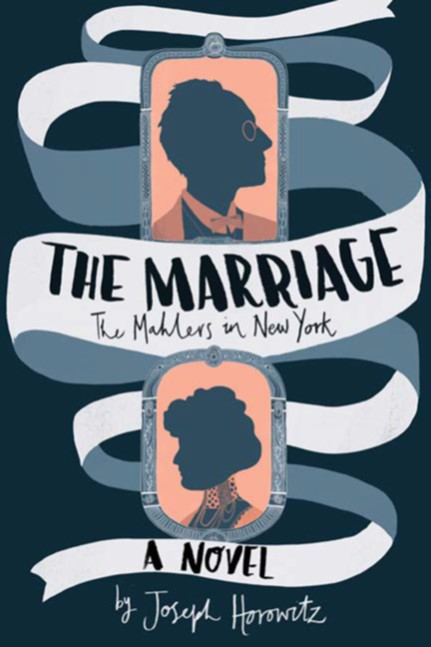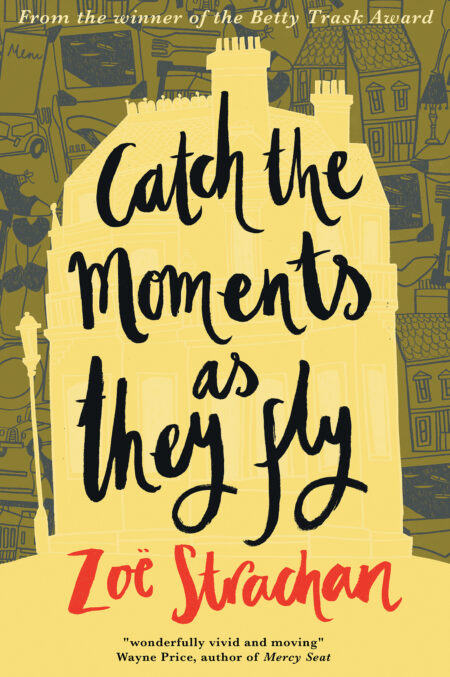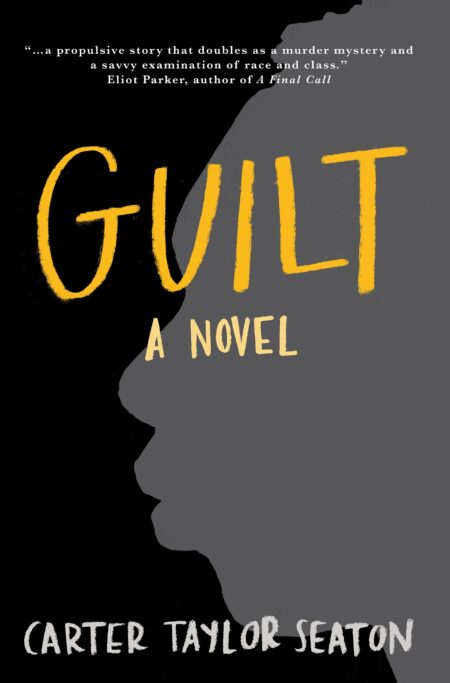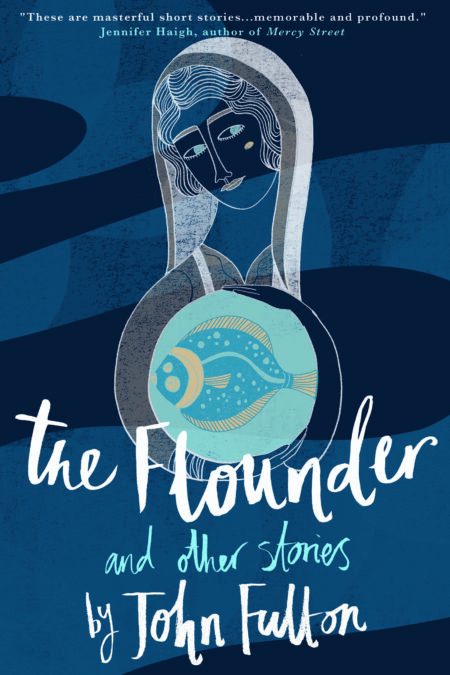Description
See the companion extra content to the book here.
Gustav and Alma Mahler arrived in New York City in 1907. He had been invited to lead the Metropolitan Opera; his glamorous wife accompanied him to the New World. His embattled American career places their legendary marriage in sharp relief. Nineteen years Gustav’s junior, Alma was his constant companion and occasional soul-mate, sometimes his muse, always his caretaker, a woman otherwise restless and unfulfilled. Her husband’s life was intensely interior, sporadically alert to others’ needs and desires.
Joseph Horowitz writes: “Every Mahler biography known to me is written through European eyes and recapitulates Mahler’s own ignorance of the New World – of the teeming musical life of Manhattan and Brooklyn. The Marriage is partly conceived as a corrective. It is in fact the first book-length treatment of Mahler in New York ever written.”
Fortified by decades of scholarship, Horowitz’s novel is set in a fin-de-siècle world music capital teeming with fabled personalities: Arturo Toscanini, whose Italian juggernaut displaced Mahler at the Met; Olive Fremstad, the Maria Callas of her day; James Gibbons Huneker, described by his protégé H. L. Mencken as a “veritable geyser of unfamiliar names, shocking epigrams in strange tongues, and unearthly philosophies”; the dapper Otto Kahn, an anomalous Jew among the Metropolitan Opera boxholders, who played cards with Enrico Caruso and pursued the company’s most fetching sopranos.
As The Marriage illuminates, there are things to be learned about Gustav and Alma that cannot as readily be observed in Vienna or Budapest as in Manhattan. Horowitz writes: “Mahler was a great personality and, when circumstances permitted, a great man. He arrived in America weakened and fatigued. His energy and idealism were aroused by the New World, but fitfully . . . he remained a chronic outsider. Gustav Mahler was not really cut out to be music director of an American orchestra, sensitive to the needs of a cultural community, its scribes, audiences, and benefactors. He had bigger things to do.”
Clips of Thomas Hampson reading from the book:
This book is a tremendous achievement.
I kept feeling as if I were living in a film I’d already seen. The dates and places and personnel were familiar, but now fleshed out. These people were real. I could hear them talking and thinking.
For the first time in my experience, Alma Schindler/Mahler/Gropius/Werfel emerged not as a stick figure in the margins of the story, but central. Wayward, mercurial, fascinating, devoted to her husband and yet living (and concealing) her own life. As I read I became increasingly fond of her and sympathetic in a way that was new to me. Of course she behaved as I’d long ago read. What choice did she have? Missing desperately her adored painter father who died when she was twelve, it’s only natural, as Joe has Freud point out, that she’d be attracted to an older man, an artist whom she could admire. And so it goes.
I’m tremendously impressed with Joe’s imagination. Going deeper and deeper, below his scholarship, he really imagines this lost world in a way we can enter it with him. This is his greatest achievement, I think.
Along the way Joe lets us meet Mahler and his supporters and detractors, some of whom are portrayed sympathetically. Others — Henry Krehbiel, notably — are damned with their own words. (Has there ever been a bigger blowhard, stuffed fat with his own self-importance, smashing through the thickets of the music business?) Joe does his best to list Krehbiel’s accomplishments, which are many and impressive. But for me, reading Krehbiel’s pronouncements without muttering curses under my breath was a challenge.
To balance Krehbiel, let me cite Mahler’s insight on the real worth of Richard Strauss: “Somewhere beneath Strauss’ insane nonchalance dwells the voice of the Earth Spirit.” Exactly so and very generous in appraising the work of a very irritating rival.
There’s a mysterious feeling to reading this book. I always know what’s just around the corner. This, after years of studying Mahler and the many books on his life and work. But at the same time, I can’t wait to read what really did happen.
The overall trajectory of Mahler’s life in these years could leave a reader despondent. Then, just when we’re about to abandon all hope, Joe gives us the story of the premiere of the Eighth Symphony in Munich, one of the greatest triumphs of Mahler’s life. This chapter is filled with love and music and children and leaves us with the will to go on.
Joe’s Mahler & Alma is a staggering achievement, enthralling, moving and inspiring. Reading its final pages, with Busoni appearing as an Angel of Death, one has the sense of having completed a profound journey, although one that is only a prelude of what is to come in the years beyond. Mahler is now heard around the world. And this book deepens our experience and satisfaction and love.
Bill McLaughlin
Gustav Mahler is one of history’s most complex and contradictory personalities, a man disarmingly naïve, intellectually profound, blunt to the point of rudeness, dictatorial, preoccupied—and frequently all at the same time. Literary biographers struggle to pin him down … With his unparalleled knowledge of fin-de-siècle classical music in America, Joseph Horowitz [has] brought us closer to Mahler and his wife Alma than any other author I have read.
Drawing on firsthand newspaper accounts, Gustav and Alma’s letters, and his own awareness of the seething, Byzantine American music milieu into which Mr. and Mrs. Mahler found themselves precipitated, he conjures a vivid portrait of New York society and life in the teeming city at the turn of the century. An assured portraitist, he brings his cast to life with the vibrant brushstrokes of a John Singer Sargent.
Even more compelling is Horowitz’s realization of Alma. History has not been kind to Alma Schindler Mahler Gropius Werfel, 20 years her husband’s junior, but Horowitz makes her a far more complex and sympathetic figure than the usual trophy hunter on the lookout for the next husband … What emerges is a woman desperate to find herself but tragically shackled to the least likely man to help her do so. At times, your heart breaks for them both.
Horowitz surrounds them with a supporting cast of fully three-dimensional characters … The Marriage is for anybody who enjoys a good read, but especially for people wanting to know more about who Mahler really was … In Gustav and Alma Mahler, Horowitz has created two of classical music’s most convincing fictional portraits.
Clive Paget, Musical America
Advance praise
A revelatory novel by one of America’s boldest cultural historians.
– Thomas Hampson
Horowitz is a master of what I would call “passionate scholarship.” He has a stake in what he writes. There is a lot of very sensitive skin in his game. As a literary writer he is at heart the free-spirited scholar he has been for decades; his prose frames in precise words the psychological ambiguities of personalities no less than the nuances of musical compositions or performances. His deep historical knowledge blends with his narrative imagination to bring to life the sounds, the smells, the physical textures, the very air his characters breathed: Gustav and Alma Mahler are, at the same time, accurate historical portraits and haunting literary presences.
– Antonio Muñoz Molina, Winner of the Jerusalem Prize
Despite his emotions having so often been on show, there has al- ways been something enigmatic and unknowable about Gustav Mahler. But where biographers and other musicologists have struggled, Joseph Horowitz succeeds brilliantly in revealing the inner Mahler in this powerful and moving novel. It is a triumph of historical imagination.
– Richard Aldous, author of Tunes of Glory: The Life of Malcolm Sargent; Eugene Meyer Professor of History and Culture, Bard College
If we want to get closer to the “truth” of Mahler and his music, if we hope to improve our understanding of the person and his creations, we need to acknowledge the role our imagination must play in the learning process. In the case of Mahler, the essential facts have long been known. What we need now are fresh attempts to conceive what further truths they might contain. Joseph Horowitz’s brilliant novel reveals much to us about who Mahler was, what he accomplished, and how he related to his world. Readers will be as eager to study it as they would any biography, and they can expect to learn as much.
– Charles Youmans, Author of Mahler and Strauss: In Dialogue (2016); editor of Mahler in Context (2021); Professor of Musicology, Penn State University
Joe Horowitz’s The Marriage portrays Mahler with more power and poignancy than anyone else ever has. Set in a spider web of New York City wealth, power, and intrigue, the writing is so profoundly personal, so searingly intimate, that it is sometimes painful to read – to get that close to Mahler and his wife Alma – “the most beautiful woman in Vienna.” I found myself unable to resist reading passages several times. This is a book for people who love Mahler and long to know him intimately (and there are millions) – a truer, more human Mahler than we have ever before encountered. Alma is also fabulously drawn, with all her love and antipathy towards her husband.
– JoAnn Falletta, Music Director, the Buffalo Philharmonic Orchestra
Persuasive and fair. It is refreshing to see this chapter of Gustav Mahler’s biography from an American perspective, written by someone not automatically biased in favor of Europe.
– Karol Berger, Author of Beyond Reason: Wagner contra Nietzsche; Osgood Hooker Professor in Fine Arts, Stanford University
Joseph Horowitz’s eleven previous books mainly deal with the history of classical music in the United States. Understanding Toscanini: How He Became an American Culture-God and Helped Create a New Audi- ence for Old Music (1987) was named one of the year’s best books by the New York Book Critics Circle. Wagner Nights: An American His- tory (1994) was named best-of-the-year by the Society of American Music. Both Classical Music in America: A History of Its Rise and Fall (2005) and Artists in Exile: How Refugees from Twentieth Century War and Revolution Transformed the American Performing Arts (2008) made The Economist’s year’s-best-books list.
In tandem with his Dvořák’s Prophecy and the Vexed Fate of Black Classical Music (2021), Horowitz produced six “Dvořák’s Prophecy” films for Naxos. His current “More than Music” radio documentaries for National Public Radio, heard bi-monthly via the daily newsmagazine “1A,” are an outgrowth of this activity. His forthcoming book, The Propaganda of Freedom: JFK, Stravinsky, Shostakovich, and the Cultural Cold Warrior, will deal with the cultural Cold War. The larger topic of all these activities is the role of the arts (today embattled) in American history and society.
Horowitz has served as a New York Times music critic, as Executive Director of the Brooklyn Philharmonic Orchestra, and as director of Music Unwound, a national consortium of orchestras and universities funded by the National Endowment of the Humanities. His website is www.josephhorowitz.com. His blog is www.artsjournal.com/uq.






